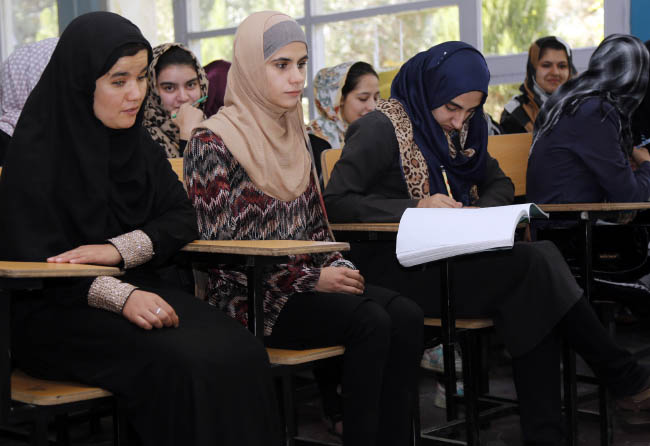Without doubt universities play significant roles in development but we have not seen any considerable academic production in Afghan Universities Since its establishment, nearly nine decades ago. None of the national universities are counted as one of the thousand recognized universities in the world and neither satisfied the demand of domestic workforce. Over the past 17 years, the government departments, including ministries, have been hiring foreign consultants, while nowadays a large number of young graduates from the country’s educational institutions are suffering from unemployment.
In recent years, many countries of the region, including Iran and Pakistan appeared in the sum of 1,000 top universities in the world. the ranking of world universities based on the quality of professors, experimental facilities and research, the number of international awards, and other indicators. while the criteria in our universities are still, somehow influenced by the lingual and racial differences. The recent event of Maryam Khawari, who has committed suicide due to the unfair pressure of professor, has divulged the depth of these issues. Thus, three years ago, hundreds of students at the School of Sciences at Kabul University were striking and struggling for several days in front of the parliament building due to systematic discrimination against the Hazara students by the university's professors.
It seems that higher educational system in Afghanistan has not only worn out but also changed to a dividing place where planted seeds of inferiority and hatreds instead of teaching cohesion values and modern knowledge. It is said that some teachers make illicit demands on some of their students in return for high grades. It is also reported that some teachers are involved in corruption like giving good grades to students for monetary benefits. In addition,the textbooks and chapters that university professors have written down from their professors are the major part of the curriculum used in the universities of the country. The continuing insistence on the lecture notes make the students pay more attention to their memory rather than focus on the creativity of students. The result of this approach has reduced the role of a student from a dynamic human being to the recording device.
Currently there are more than eighty private universities along with nearly thirty-five state universities in different provinces of Afghanistan. Most private universities operate in Kabul, and these universities are located in certain areas and have more cooperation with certain people. The university founded by Pashtun people is located in the Pashtun area, and a university run by a Tajik is located in a more Tajik area. This has had a profound separating effect on the students of these universities. Students who have not been able to enter public universities prefer to study in private universities that are related to their own people.
Other problem is that majority of our university professors are so-called masters who were products of the institutions where the standard of education needs a lot of improvement. This problem is getting worse because older people are resisting against the induction of younger and better qualified individuals. On the other hand, there is no legal permission for distant study system to play role in constant upgrade of professors and other job holders. While there are many distant learning system in the region, like Indira Gandi in india, Danishga Azad in Iran and hundreds in other parts of the world, which promote millions in a single year.
Contrary to what's going on in our universities, modern universities pursue five major goals: firstly, as a repository of the Knowledge, universities must act as ‘knowledge vaults’, maintaining and securing crucial knowledge for present and future generations. Secondly, as a producer of new Knowledge, undertake the activity that we call research. Thirdly, as transferor of knowledge to the next generation, i.e. what we call education. Fourthly, as transferor of Knowledge to society, i.e. what we call dissemination. Fifthly, as generator economic development, play an integral role in furthering economic growth and thereby pursuing socio-economic goals.
Based on these, the higher education should analyze the course of a country's development through the elements of higher education namely, the number of higher education institutions, standard of education, aptitude of teachers, number of students in higher education, number of theses being produced every year and the number of research journals published by the higher education institutes makes it easier to gauge the pace of progress. Higher education is also considered a yardstick because the graduates of colleges and universities provide the future leadership in ideological, educational, political and national life. They also play a key role in determining the characteristics of a society, driving it towards rise or fall, or steering it towards right or wrong directions.
So a study of evolution of higher education in Afghanistan would be highly significant at this crucial juncture of history when putting Afghan society on the right track of development. All Afghan scholars, think tanks, educationists and academicians need to think upon the overall dynamics of current system and status of education in general and higher education in particular to devise a comprehensive education policy. Keeping in mind the contours of this policy, they need to develop a pragmatic and concrete action plan so that the people working for the cause of education reach a clear understanding of educational goals and steps to be taken. This exercise will also give the whole nation a sense of direction. The policy should also guide the government towards taking revolutionary steps, and utilize the available resources wisely.

